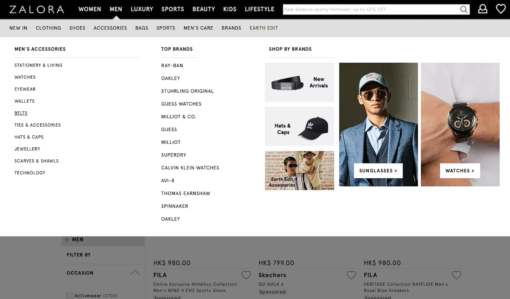Why should you choose WooCommerce over Shopify?

There are overwhelming choices when it comes to e-commerce platforms and solutions. Notably Shopify is a winner in this arena. It has almost become synonymous with e-commerce. For one key primacy Shopify allows small businesses to open and operate an online store fairly easily. Through the platform, you can build your website, manage products, calculate shipping rates, accept different payments and sell across multiple channels. What’s even better is you don’t need to maintain the software at all. It is because Shopify is a cloud-based hosted solution. All that sounds too good to be true, right? Then why do you need to look further? Or to be more specific, why should you choose WooCommerce over Shopify?
Shopify’s Shortcomings
There are some aspects to consider when building a new web store. In the first place something that is popular doesn’t mean it is the best choice for your business. In regardless of whether it is WooCommerce or Shopify, no e-commerce software or platform is almighty. From the perspective of merchants or business owners, you must check them carefully before making your decision. Secondly, building an e-commerce website is a long term investment. You are looking into a 3 to 5 years of or even longer system life expectancy. You shouldn’t run into your decision just for the sake of ease-of-use and low maintenance. And by the same token, your online store is not simply a tool. It is a personal touch point of your business’s online presence. The intensity of e-commerce usage tends to be positively correlated with corporate performance. Do it right it will certainly raise your productivity, brand exposure and sales growth.
Now let’s take a look at some of the most serious shortcomings about Shopify that you need to be aware of. They seemed to be quite trivial on the surface, but when look deeper you’ll see they are actually rather lethal (to your own online store).
#1 Subscription and Transaction Fee
At the time of writing, the base fee of Shopify is $29 per month. But if you want to use certain features, you’ll need to upgrade and pay extra. These fees can add up.
And on top of the basic monthly fee, Shopify would also charge merchants a 1% transaction fee on any orders unless they are using its Shopify Payments in conjunction with PayPal. On average merchants are paying a higher transaction processing fee than most of the payment gateways available in the market either way. This sum is particularly significant if your products are very profit-margin sensitive. The total running cost could end up much higher than you expect.
#2 No Multi-level Product Category

Merchants can only group their products into collections and then show them as categories to customers in Shopify. That’s fine for most businesses with a small product catalog. The biggest problem though, is you can’t build a product hierarchy as simple as Men > Accessories > Gloves.
We call this feature multi-level product category. Why is it important? With a systematic product category leveling, merchants are able to organize their online catalog more neatly. It is essentially a must-have feature for online shops with a certain number/ size of product selections. It doesn’t just give customers a quick overview of the range of your product offerings, it makes them easier to locate the items they are looking for. After all it is a very basic feature to provide customers with a good online shopping experience that any e-commerce software and platform should have.
#3 Universal Search only

Since we are on the topic of providing a good online shopping experience. In this respect most users would prefer to search within their currently navigated category path when shopping online, in an attempt to ‘filter the product list on their screen with a search query’.
Yet Shopify does not support such user behavior. It will instead perform a universal or site-wide search.
There are two main issues. First it would kick the customer out of the category they have navigated to and cause unintentional scope jumping. And then it may also provide many irrelevant and poor search results and filtering options.
The fact is it is very logical for customers to search and limit their search results within a category when they are in that category. Customers shop online because it is convenient. If you can’t make the process easy and enjoyable, they will just leave and find somewhere else to spend their money.
#4 International retail and localization
Shopify does support international retail, but with some limitations. One example is if you have a HK bank account, your customers in the US can see products displayed in dollars, however at checkout, the total will revert to HKD.
What most bigger retailers do is set up separate Shopify instances for each target region, then each shop will have the most suitable currency and language selected for that area. However, this is not the end of the story. To complete the setup, they will need to implement systems for syncing product data, inventory, blog posts, etc. between stores. It is a rather clumsy process. And it could potentially compromise the efforts your have put into your SEO marketing.
#5 Hosted system
Shopify is a hosted platform, so you are limited in terms of what you can do with the code. This might not be a bad thing to most small merchants. What is worst and could get out of control is, since your store is running on their cloud, Shopify has the absolute power to shut it down or hold your payment at their discretion. Your online store could be more susceptible to senseless complaints and attacks by villain competitors.
#6 Highly proprietary, less scalable
Shopify is not an open source platform either, that said your hands are rather tied in terms of customization.
As the internet world is moving lightning fast, you need to gather and analyze data continuously to improve your web store. Sometimes you need to innovate it, add new features to attract new customers and keep them returning. Your operational efficiency and transparency with customers must be elevated to keep up with market demands. Without too much customization and expansion options, Shopify could an obstacle when you are ready to scale your online business to the next level.
Wrapping Up
If anything the pandemic has accelerated, buying and selling online is now playing a very important role. Needless to explain there is a lot of reasons why customers today prefer shopping online and the trend is still growing.
Apparently Shopify wouldn’t have been so successful if they are not doing their job well. So before we finish, we have to make clear (if we haven’t) that we are not saying Shopify is a bad product or over-priced in any way. Nor are we saying it is a K.O. win for WooCommerce over Shopify. We’ll leave that for you to judge.
Our advice on your next e-commerce project
You may not have a big budget as compared to large corporations. Yet you shouldn’t mistakenly trade off the potentials of your online store for convenience. It is neither a side business nor a fun venture. Your e-commerce store is a core part of your online strategy. You have to take it very seriously and decide for your business the best suited e-commerce platform.
Eligible for TVP application
In case you are not aware of, what you need to take note too is if your entity is registered and operated in Hong Kong, be it a custom website design or ‘merely’ a WordPress implementation, your website and e-commerce projects are eligible for the application of Technology Voucher Program (TVP) funding. If approved, up to 3/4 of the spendings on the project will be reimbursed by the Hong Kong S.A.R. Government.
Other related topics that you may be interested in:
- Expanding Your Online Sales Beyond Social Commerce
- What is ‘Pick, Pack, Ship’? How does it make or break your e-Commerce business?
- How to pick the best domain name?
- Selling Your WooCommerce Products on TikTok is Never Easier
- How to do SEO for WooCommerce?
- How to optimize a WordPress website for Google ranking?
- Learn more about our WordPress Maintenance and Support Services.
- Five ways you can use WordPress to supercharge your Business Growth
- What is a SEO-Driven Website Plan? Why is it important to the success of making a new website?
- What must be considered when choosing a WordPress theme?
- Why are WordPress Categories and Tags important?
Whether you’re a current Shopify customer looking for other options or just starting to research what e-commerce platforms or solutions are out there, we are here to help. Drop us a line for a free consult and/ or a WooCommerce demo.
Email: [email protected]
WhatsApp: +852 6099 4407
